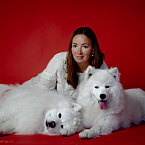Modeling in food industry
Modeling is considered as a modern method of studying technological processes and as a form of reflecting reality. Modeling of technological processes in food production comes down to studying flow temperatures, flow rates, changes in volumes, changes in enzyme activity, establishing patterns and finding optimal values for raw material quality indicators and process parameters to obtain the best technological result.
The goal of mastering the discipline
Training students to independently create computer models of technological processes, devices, complexes, lines and food production control systems necessary for their design and improvement.
The skills you get
- Ability to use information technology to solve technological problems in the production of food products from plant materials. Readiness to apply methods of mathematical modeling and optimization of technological processes for the production of food products from plant raw materials based on standard application software packages
Topics covered
- 1. General concept of modeling. Main stages of development of modeling methods 2. Physical modeling. Application area and possibilities of physical modeling. 3. Mathematical modeling 4. Typical models of technological processes 5. Modeling using electronic computers (ECM) 6. Creation and research of mathematical models in food technology 7. Methods of mathematical statistics in food technology 8. Search for optimal solutions in food technology 9. Modeling of heat exchange processes in food technology
When instructed
- 3rd year, 2nd semester
List of references and sourses
1. Frantenko V.K. Modeling in food production: laboratory practical training / V.K. Frantenko, G.S. Gusakova, 2017. - 85.
2. Yanchukovskaya. Modeling and computer calculation of chemical-technological processes [Electronic resource]: a tutorial. Part 1: Hydrodynamic processes, 2012. - 110.

 Phone
Phone
 Mail
Mail